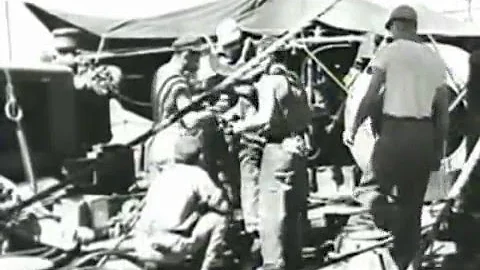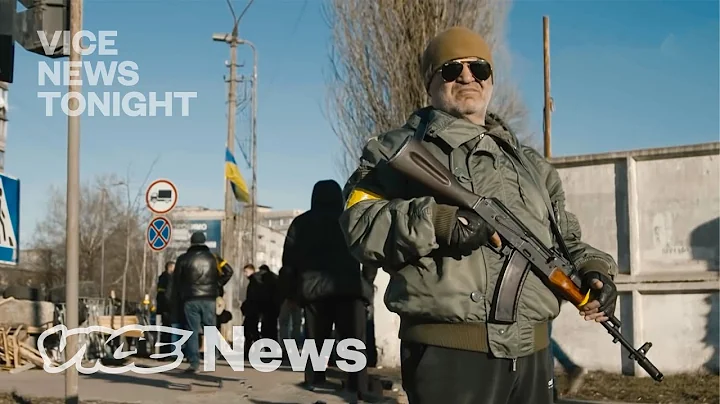三下江南

In the autumn of 1946, after our army retreated to the north of the Songhua River , the Northeast Bureau organized more than 100,000 cadres to go to the countryside, mobilize the masses, and establish and consolidate rural base areas. Establish peasant associations in rural areas, suppress bandits and rebel against hegemony, and expand the number of troops. After more than half a year of hard work, a stable base area was established and the rear area was consolidated. The troops have been replenished and reorganized, and their combat effectiveness has been strengthened. After the Kuomintang army occupied the south of the Songhua River, due to the long battle line, dispersed troops, and insufficient strength, they had to adopt the strategy of "defending from the north and attacking from the south, first from the south and then from the north", concentrating the main force in southern Manchuria, in an attempt to eliminate our southern troops first. Manchu troops, relieved of worries, and then attack north Manchuria , and finally occupy the entire northeast.
In response to this situation, our army decided to adopt the combat policy of "responding to the north and the south, hitting and pulling" to crush the enemy's attempts to defeat each other.
Beginning in January 1947, our army carried out a winter offensive known in history as "three attacks to the south of the Yangtze River and four guarantees to the Linjiang River". In order to cooperate with the South Manchu troops in four operations to defend the Linjiang area, our army in North Manchuria crossed the Songhua River three times in the area north of Jilin and headed south, taking the initiative to attack Changchun and Jilin, forcing the enemies who attacked South Manchuria to return reinforcements and reducing the pressure on South Manchuria. Our army puts pressure on and crushes the enemy's attempts. Our regiment followed the Jibei Army division and participated in this offensive.
In early January 1947, our regiment set out from Chaoyang area with the divisional troops, crossed the Songhua River westward (down to the south of the Yangtze River), and carried out siege and reinforcement missions in the Shitun area. It was responsible for blocking the enemy reinforcements from Jilin and Wula Street to Tamu, ensuring the main force. One column and three divisions annihilated the enemy defenders in the Tamu area.
Guarding its tower is a reinforced battalion of the Kuomintang's ace New First Army, with more than 800 people, equipped with large-caliber artillery and built solid fortifications. It was also a reinforced battalion of the New First Army that rushed to support Qitamu from Jilin and Wula Street. On the day we entered the position, the enemy attacked me under the cover of artillery fire. The battle lasted for three days and three nights, and the enemy failed to advance a step. Subsequently, the superior ordered our divisional troops to launch a counterattack against the invading enemy. On January 10, under the cover of artillery fire, our troops quickly rushed into Shitun. After several hours of fierce fighting, the enemy fled towards Jilin. Our regiment then pursued it, but the friendly forces failed to cut off the enemy's retreat on time, causing the remaining enemy forces to flee back to Jilin.
It can be seen from this that the enemy's new first army's combat effectiveness was still quite strong at that time. One of our main divisions surrounded the enemy's battalion in Tamu and fought for three days and three nights. However, they failed to completely annihilate the enemy and finally let them escape. During the battle, we captured dozens of prisoners, all of whom were veterans who had participated in the Yunnan-Burma Anti-Japanese War. I personally talked to them and persuaded them to join our army. But they looked down upon us at all and called us Tubalu. They all expressed that they just wanted to go home. Almost no one was willing to take the initiative to join our army. At that time, our policy towards prisoners was to keep them free, so we had no choice but to let them go.
In this battle, our Jibei Division troops, as a newly formed unit, blocked a reinforced battalion of the enemy's New First Army with fine equipment and equipment in the Shitun area for three days and three nights. Not only did they not allow the enemy to advance a step, they also captured After arriving at Shitun, he annihilated more than 300 enemies, which provided a strong guarantee for the main force to annihilate the enemy defenders in his tower. For this, he was praised by the Dongzong General. At that time, ((Northeast Daily) reported on the victory of the Northeast People's Liberation Army's "Go to Jiangnan" operation and specifically mentioned: "The Jibei Division troops attacked bravely, and the Kuomintang troops fled in panic."
After the battle, our unit returned to Jiangbei for training . Due to the outstanding performance of the Jibei Division in the "Jiangnan Campaign", at the end of January 1947, under the orders of the General Dongfang, the troops under the jurisdiction of the Jibei Division, together with two county security regiments and a regiment of the Songjiang detachment, were reorganized into the Northeast Democratic Alliance Army Independent Third Division. , under the jurisdiction of the 7th, 8th, and 9th Regiments. The first regiment was reorganized into the 7th Regiment, with He Yanfan still as the commander and me as the political commissar. So far, our regiment has grown from a local armed force to a main force.
html In early February, the Kuomintang army tried to get rid of the two sides. In order to cooperate with South Manchuria in defending Linjiang, our army in North Manchuria made a "second march to the south of the Yangtze River" and besieged Dehui. One of the purposes was to cooperate with South Manchuria in defending Linjiang. The first is to attract enemies from South Manchuria to move north for reinforcements in order to relieve the siege of Linjiang; the second is to take the opportunity to eliminate the enemy's effective forces. The task of our independent third division is to provide reinforcements in the area south of Dehui.Dehui is the barrier to the north of Changchun. It is defended by a division of the New First Army of the Kuomintang and about 5,000 security forces. There are a group of bunkers built around the city. At that time, our army did not have the equipment and experience to fight a tough battle, so the main attack on Dehui progressed slowly. In order to relieve the siege of Dehui, Du Yuming urgently mobilized 12 regiments of the New 1st Army and the 71st Army from southern Manchuria and Western Manchuria to go northward for support. In order to seize the initiative, General Dong decided to stop the offensive and quickly returned to Jiangbei, ending the second campaign in Jiangnan. Our unit returned to Jiangbei for rest on March 2. This time when we went to the south of the Yangtze River, although our army did not capture Dehui, it attracted 12 enemy regiments to move northward, thereby achieving its goal of reducing the pressure on the liberated areas in South Manchuria.
After our army withdrew northward, Du Yuming traveled from Changchun to Dehui and threatened to fight our army on both sides of the Songhua River. He therefore mobilized part of the main force of the Kuomintang army and advanced northward along the Zhongchang Road. In order to combat the enemy's invasion, cut off the Jilin-Changchun line, isolate the enemy north of Jilin, prevent the enemy from Changchun from aiding eastward, and ensure that the main force of our army annihilates the enemy in the area north of Jilin, on March 12, the Third Independence Day The division was ordered to participate in the "Three Expeditions to the South of the Yangtze River".
After crossing the Songhua River again, the 7th Regiment first annihilated a company of garrison troops stationed at Hewanzi Station of the enemy's security regiment. Afterwards, they continued the attack westward along the railway, and together with the 8th and 9th regiments attacked Jiutai County. A regiment of the New First Army of the Kuomintang was stationed in Jiutai. When the enemy troops learned that the democratic coalition forces were coming to attack, they quickly retreated. We quickly occupied Jiutai and cut off the Jilin-Changchun Line, forcing the enemies to the east of the Jilin-Changchun Line to retreat to Jilin, while the enemies to the west of Changchun did not dare to send aid, thus ensuring that the main force of the Northeastern Democratic Alliance was in Shantun and Nong'an areas north of Changchun. The realization of the plan to annihilate the enemy. During the "Three Expeditions to the South of the Yangtze River", we were able to successfully complete the tasks assigned by our superiors and effectively guaranteed the combat deployment of friendly forces north of Jilin, for which we were praised by the headquarters. This battle was also a training opportunity for our unit, which greatly improved the combat effectiveness of the entire regiment. On March 28, the Third Independent Division completed the "three expeditions to the south of the Yangtze River" combat mission and was ordered to withdraw north and return to the Shulan headquarters.
At that time, Jiutai had a 100,000-kilowatt thermal power plant. In order to prevent the enemy from using the power plant after occupying Jiutai again, General Dong ordered the Third Independent Division to blow up the power plant when retreating.
Master Cao Lihuai gave me the task. Before leaving, I led the demolition team to blow up the power plant. As soon as I arrived at the gate of the power plant, I was surrounded by hundreds of power plant workers. The workers said that they relied on the power plant to support their families. If the power plant disappeared, their livelihood would be cut off, and they firmly opposed our blowing up the power plant. This makes me very embarrassed. After careful consideration, I decided not to blow up the power plant. At that time, the situation was urgent and there was no time to ask for instructions. Judging from what happened later, it was right not to explode. Because not long after, we liberated Jiutai and the power plant returned to the hands of the people.
The "Three March to the South of the Yangtze River, and Four Guards to the Linjiang" campaign lasted for three and a half months. The Northeastern Democratic Alliance Army not only shattered the enemy's strategic plan of "attacking the south and defending the north, first south and then north", but also greatly weakened the maneuverability of the Northeastern Kuomintang Army. Strength, so that it had to switch from offensive to defensive, and the initiative in the war gradually transferred to the hands of the Northeast Democratic Alliance Forces.




![Philippine Geography - Yoyoy Villame [Karaoke Version] - DayDayNews](https://i.ytimg.com/vi/e_PMcFjE9as/hqdefault.jpg?sqp=-oaymwEcCOADEI4CSFXyq4qpAw4IARUAAIhCGAFwAcABBg==&rs=AOn4CLDMJ68-vxcc-qGYIULEbau-sKnk7w)
















